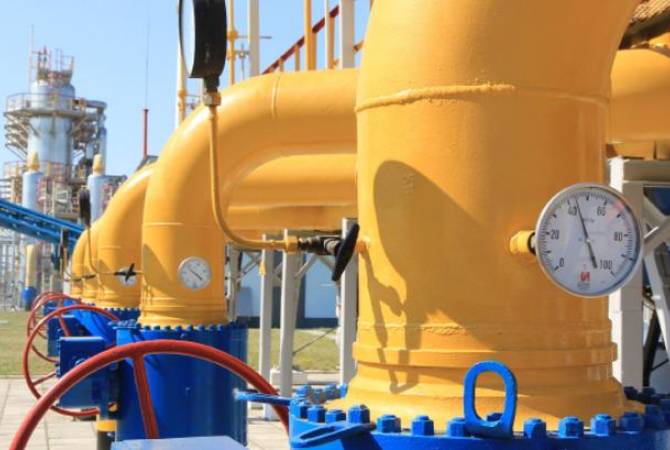
EU’s self-deception of benefit to Azerbaijan and Russia
Western countries are looking to Azerbaijan to help end their reliance on Moscow’s fossil fuels, striking a string of natural gas agreements even during this year’s COP29 climate change talks. That’s not the only irony, though: The deals could ultimately benefit Russia, POLITICO writes.
Since Moscow launched its all-out invasion of Ukraine, the European Union has been looking to resource-rich Azerbaijan to help replace the Russian energy it relied on for years. And Azerbaijan has been only too happy to help. Then, as host of the COP29 summit, the authoritarian petrostate has unabashedly promoted its natural gas resources and flaunted new commercial arrangements with several European countries.
President Ilham Aliyev even hosted a signing ceremony for one such deal on the conference sidelines. However, in order to increase its exports to Europe, Azerbaijan has dramatically upped its own fossil fuel imports from Russia. Some researchers suspect the country may be simply relabeling some imported Russian fuel and sending it along to Europe, although Azerbaijan insists the supplies are merely for domestic use. Either way, though, Moscow benefits. “Azerbaijan is trying to position itself as a major EU energy partner,” said Aura Sabadus, a gas markets expert at intelligence firm ICIS. “But they don’t have the production and, at the moment, they’re punching above their weight.”
The arrangement is just one of the compromises Western countries are making in aligning themselves with Azerbaijan. “Europeans see Azerbaijan as an alternative to Russia, but buying energy from Azerbaijan means buying energy from Russia,” Zhala Bayramova, an Azerbaijani dissident, said.
That ambition has been evident at COP29, where Aliyev clinched gas-related deals with Slovakia, Bulgaria and Serbia. In 2024, the country bought close to $40 million in Russian crude oil each month, according to an analysis by the Centre for Research on Energy and Clean Air shared with POLITICO. That’s $23 million in monthly tax revenue for the Kremlin, the organization estimates. A tranche of leaked documents, seen by POLITICO, shows that the European Commission has tried to push Azerbaijan to comply with new rules on methane emissions—which can leak during oil and gas production and is 84 times more potent for global warming than carbon dioxide. The overture comes ahead of new EU rules that will impose restrictions on exporters that could scupper the bloc’s energy relationship with Azerbaijan. Despite their ever-closer energy ties, Azerbaijan and the EU have an increasingly testy political relationship. Brussels has called on the South Caucasus country to release political prisoners, who rights watchdogs say have been jailed on spurious charges and won’t get justice in a system effectively run by Aliyev and his favored elites. Brussels is even under pressure to reassess its fossil fuel deals with Azerbaijan. The European Parliament passed a nonbinding resolution earlier this year calling on the EU to do just that, citing the human rights concerns, the ongoing conflict with Armenia and allegations that Baku is laundering Russian gas for Europe. Yet the EU is not poised to change course.


